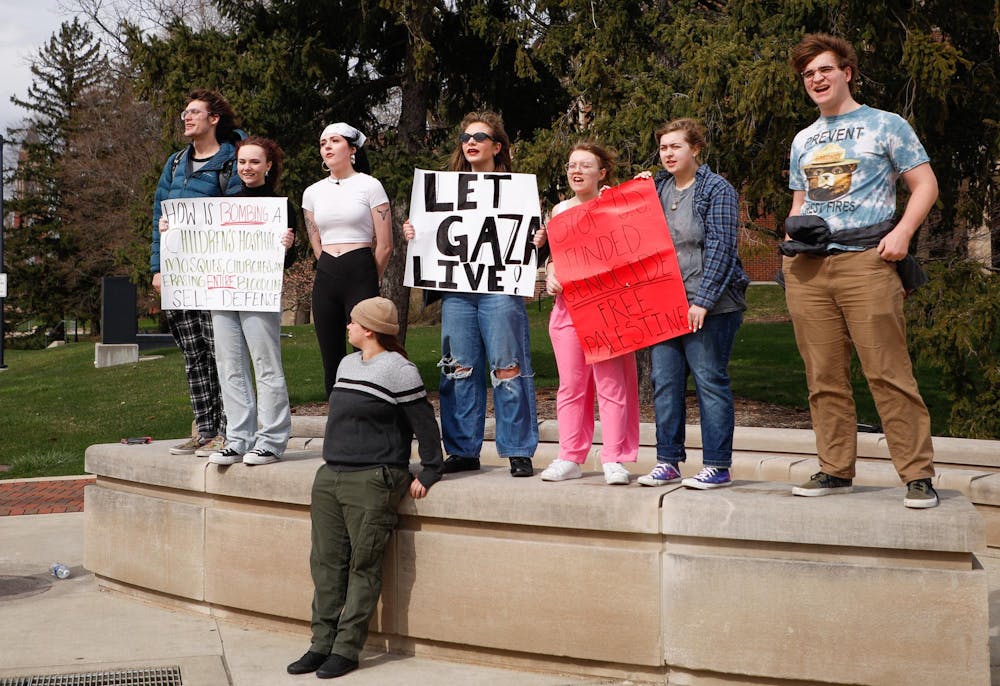Students gathered at the Scramble Light March 25 to protest the lack of aid provided to Palestinians from the United States.
The United States became involved in the Palestinian-Israel conflict Oct. 10. The conflict started Oct. 7 after Hamas launched a surprise attack against Israel.
According to The Associated Press (AP), President Joe Biden announced in a March 7 State of the Union address that U.S. assistance to be delivered to Gaza via the construction of a temporary port on the coast of Palestine.
Three planes from Air Forces Central dropped 66 bundles containing about 38,000 meals into Gaza March 10, according to AP. Originally, Biden hoped that a deal for a ceasefire could be reached before Ramadan, which began March 10. A deal has yet to be reached.
The United Nations Security Council issued a demand for a ceasefire on March 25, but the United States abstained, according to AP.
First-year student Tanner Brinegar, who arranged the protest at the Scramble Light, said she did it to bring awareness and create conversation amongst her peers.

Ball State students chant in protest of the war in Palestine March 25 at the Scrmble Light. Andrew Berger, DN
“For me, the biggest thing is to spark conversation and get people talking about what’s going on,” Brinegar said. “When we last held protests, we had people come up to us and ask questions. We were able to educate people.”
Erica Hartman, a first-year at Ball State, echoed Brinegar.
“I think it’s super important to go out and talk about this,” Hartman said. “I think it's good to do something like this where people can feel comfortable enough to walk up to you in public and ask questions.”
Hartman added it was important to take the time to learn about the ongoing conflict and its storied history.
Second-year Merrah Salyer said protesting brings awareness to issues that might have otherwise been forgotten about.
“I think that we have a bad tendency to stop discussing things after the shock value of them is gone,” Salyer said. “Even if we reach a ceasefire, that doesn't mean that we don't need to rally support for Palestinians who have been displaced or need medical aid.”
Contact Trinity Rea via email at trinity.rea@bsu.edu or on X @thetrinityrea.





